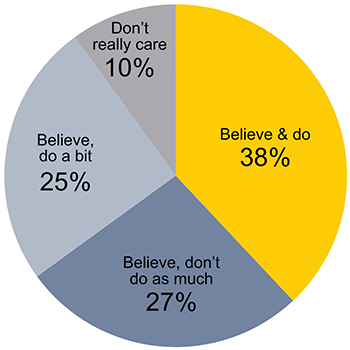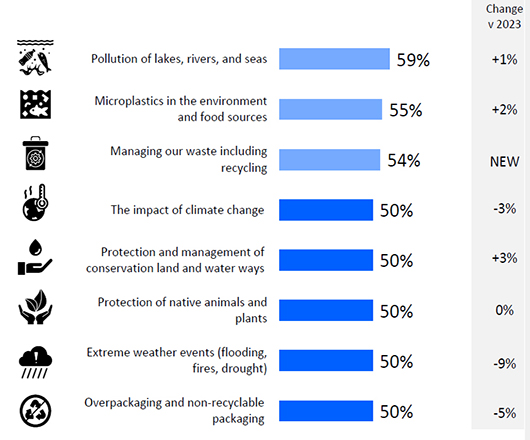Greenhushing – when fear gets in the way of sustainability
It feels like every week another story about brands being publicly lambasted for greenwashing hits the headlines.
In case you’re new around here – greenwashing is when a company or organisation makes sustainability claims which are false or misleading. But it’s a risky business. Today’s consumers are savvy and will cancel businesses they think are guilty of it – they see straight through our marketing speak and sustainability gloss.
So, what do brands do when their customers are well-informed and want to support businesses actively reducing their environmental impact? Obviously, they address environmental concerns and publicly talk about the action they’re taking, right? Well, not quite.
Unfortunately, many local brands don’t talk about their sustainability journey at all, favouring silence for fear of getting it wrong and being cancelled by the masses. This has been dubbed “greenhushing” and we collectively need to move past it if we’re going to create the future we all want and deserve.
As businesses, we can’t keep letting perfect get in the way of good. At this point in history, we need to accept that we’re never going to get it completely right on the first try. And that we’re much better to make some progress, any progress, than none. Otherwise, we’re just kicking the can further down the road for our mokopuna to clean up.
Our customers are more aware than ever
Being ecologically (and ethically) aware and active is no longer just for the early adopters or old-school tree-huggers. Kantar’s 2024 Better Futures report shows the eco-active segment now makes up 38 per cent of Aotearoa’s consumers. They’re mainstream. Add to that the 27 per cent who believe environmental issues need to be addressed, but don’t necessarily act on it, and you have well over half the population.

As organisations and brands we know getting it right is difficult, but so do our customers – because they’re also finding it hard to make the right choices, to do the right thing. By staying silent, we do them a disservice, underestimating their ability to understand the complexities of the challenges we all face.
Environmental concerns are becoming more diverse
Our customers are smart. They’re not just concerned about climate change on its own. Consumers now have a diverse range of environmental concerns – from microplastics and waterway health to pollution and waste reduction. They also view the environmental actions of businesses as falling significantly short of their responsibilities. So, it’s only right that we respond by not only taking action, but also talking about it.
Top eight environmental concerns

Kantar Better Futures report 2024
So how can we communicate effectively?
So how do we communicate the progress we are making in a way which protects us from greenwashing, but also underlines the nuances of the challenges we face? How do we build trust with our customers and bring them with us on our journey? Kantar has some tips to help:
- The first one is easy – be honest! Avoid the temptation to stretch the truth or make things sound better than they are. Just because something is less bad, doesn’t mean it’s sustainable.
- If you’re saying your product or service is better, make sure you’re clear about what it’s better than. Is it better than your previous iteration? Or your competitor? Or something else? Apples with apples comparisons only, please!
- Avoid using misleading “natural” imagery
- If you’re going to talk about milestones, make sure they’re meaningful and not so far in the distance as to not mean, well, anything. Consider how you will report against them.
- And finally, it’s imperative we use language everyone can understand and agree on. Ambiguous terms, like Net Zero, or ones which aren’t clearly defined, create confusion and make it harder for your customers to choose your product or service. For example, if you say your packaging is compostable, does that mean home compostable? Or biodegradable? Or it needs to be industrially composted?
Being as clear as possible about the environmental actions we’re taking makes it easier for everyone to trust what we’re saying. We know keeping it simple can be difficulat, especially when it comes to the technical stuff, but we promise, it’s possible! To address and solve environmental issues, we need everyone on the waka, not just the scientists and subject matter experts.







